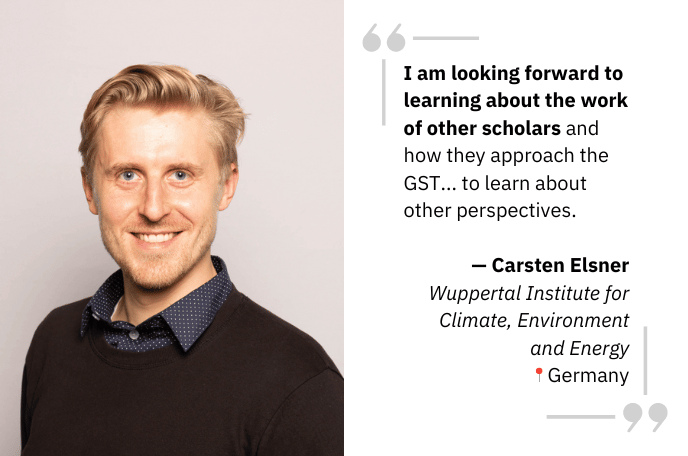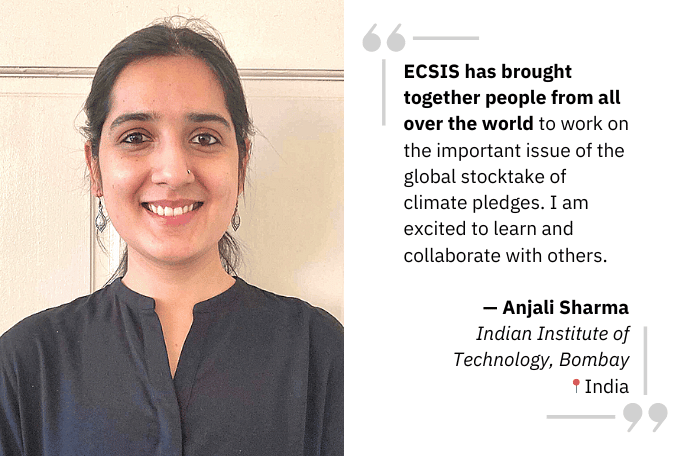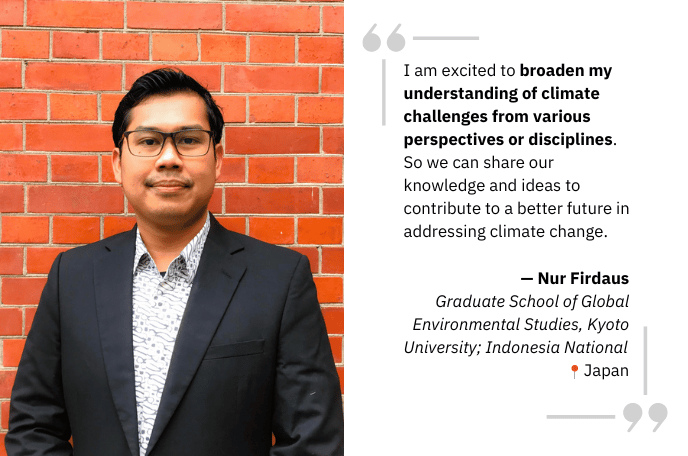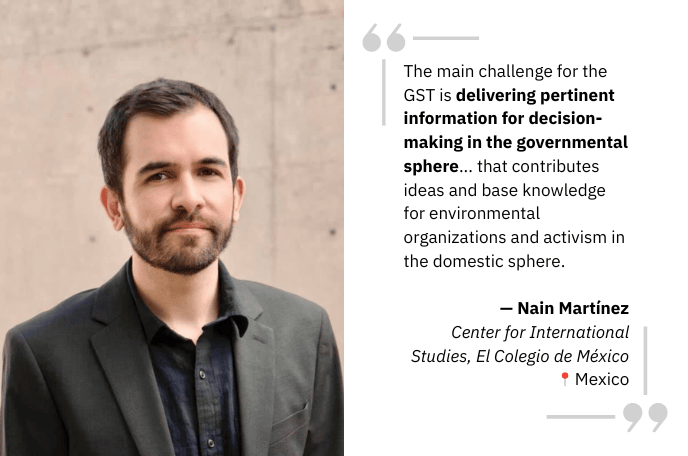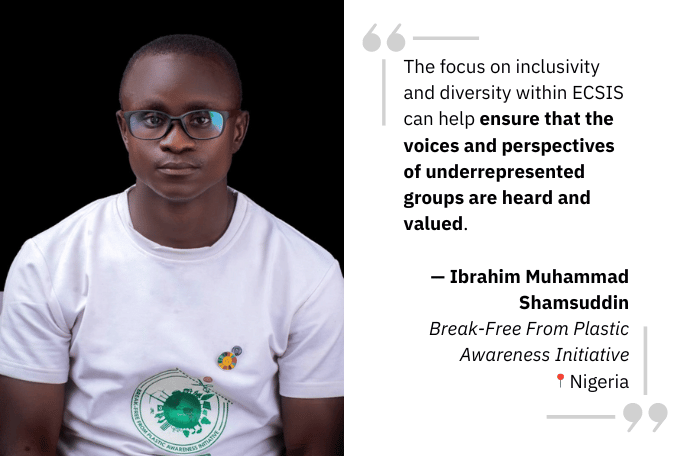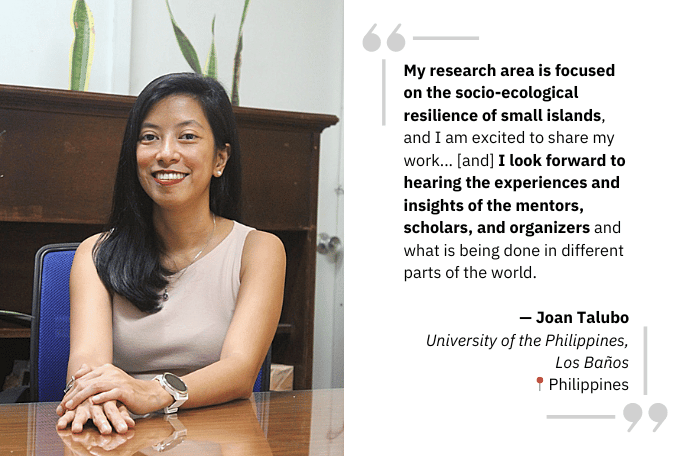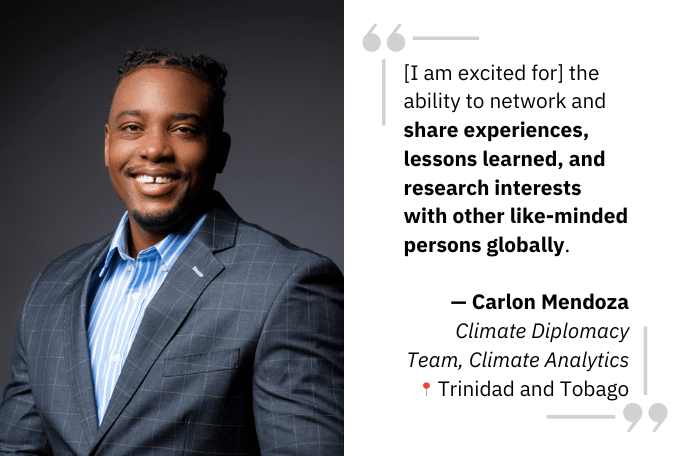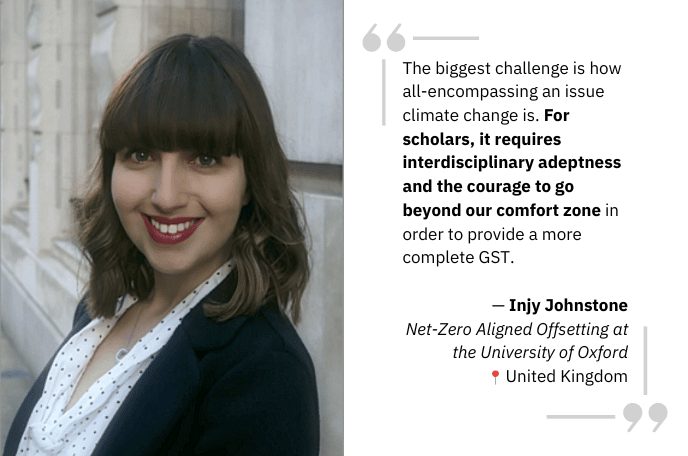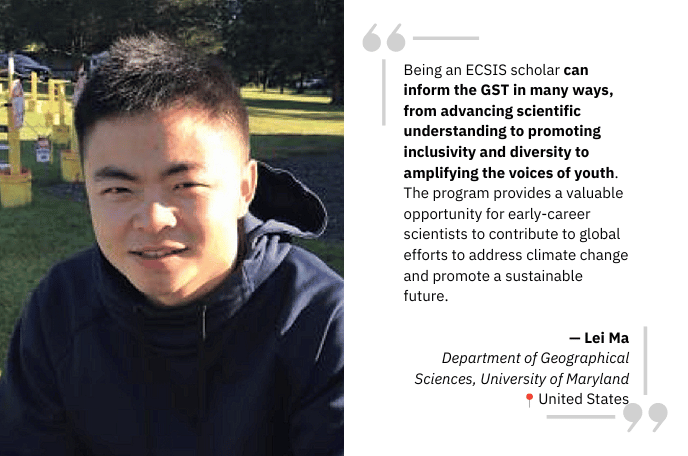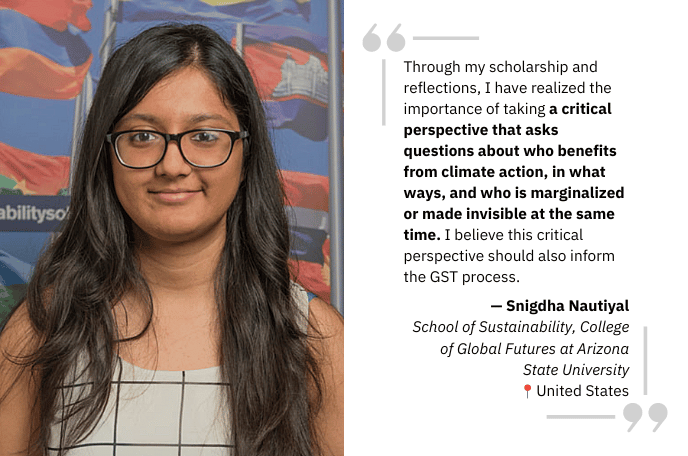
Meet our 2023 ECSIS Scholars
We are excited to announce the first cohort of the Early Career Scholars for an Inclusive Stocktake (ECSIS)! Launched at COP27 in Sharm El-Sheik, Egypt, ECSIS aims to create a network of future leaders at the forefront of stocktaking research to inform policymakers better and incubate innovative thinking on broader climate challenges.
Diversity is core to the program in disciplines, races, genders, and more. The ten scholars making up this first cohort represent six continents, have expertise across nine major sectors and issue areas, including climate finance, mitigation, and adaptation, and share a vital interest in advancing knowledge sharing, increased capacity-building, transparency, and implementation in the global stocktake (GST) process.
ECSIS is facilitated by the independent Global Stocktake’s (iGST) co-leads for the mitigation working group, Center for Global Sustainability (CGS) at the University of Maryland, and the Council on Energy, Environment and Water (CEEW).
Meet our scholars and their expertise below! What to know more about ECSIS? Learn about the program and how you can get involved.
Carsten Elsner
Carsten Elsner is a Researcher at the Wuppertal Institute for Climate, Environment and Energy and works in the "Global Climate Governance" research unit. In his work he focuses on the Nationally Determined Contributions (NDCs) and the Global Stocktake (GST) as well as on energy transitions in carbon-intensive regions. He holds a Master’s Degree in Political Economy of Development from the School of Oriental and African Studies (SOAS), University of London. Previously he completed a Bachelor of Science in Economics and a Bachelor of Arts in Political Science at the Ludwig-Maximilians-Universität in Munich (LMU). Furthermore, he currently pursues a PhD in political science which revolves around standardization processes in green finance and the EU Taxonomy.
Anjali Sharma
Anjali is an assistant professor at the Indian Institute of Technology, Bombay (IIT B) in India. The aim of her work is to inform just and equitable policies for a low-carbon world. Her current work examines whether and how electric vehicles can worsen health inequities across different social groups and geographies. Her doctoral dissertation involved modeling and evaluating the employment impacts of power sector decarbonization in India. Anjali’s research has been published in peer-reviewed journals which include Energy Policy, Renewable and Sustainable Energy Review, and Energy for Sustainable Development.
Nur Firdaus
Nur Firdaus is a researcher at the Center for Economic Research, Indonesia National Research and Innovation Agency (BRIN). He obtained his bachelor’s degree in business administration from Universitas Indonesia (2012) and master’s degree (2018) in banking and finance from Monash University, Australia. He is a doctoral student at the Graduate School of Global Environmental Studies, Kyoto University, Japan. His research interests include finance, sustainability transitions, and economic development.
Nain Martinez
Nain Martinez is an Assistant Professor at the Center for International Studies at El Colegio de México and holds a Ph.D. in Environmental Science, Policy, and Management with a Designated Emphasis in Science and Technology Studies from the University of California at Berkeley. His research focuses on how the political process shapes international climate governance and national energy transition policies and how their implementation shapes local infrastructures, economies, and social environments, particularly in Mexico and Latin America. His most recent publications included: Theorizing the devices of sociotechnical governance: Systemic practices, visions, and dynamics of change in Mexico's energy transition, Energy Research & Social Science, 90 (2022), 102626; The production and flow of knowledge in the international race for COVID-19 vaccines, Foro Internacional, 247 (2022), 47-102; The effectiveness of the social impact assessment (SIA) in energy transition management: Stakeholders' insights from renewable energy projects in Mexico, Energy Policy, 145 (2020), 111744; Resisting renewables: The energy epistemics of social opposition in Mexico. Energy Research & Social Science, 70 (2020), 101632.
Ibrahim Muhammad Shamsuddin
Muhammad is a multi-talented individual who wears many hats: a climate justice activist, digital storyteller, grassroots organizer, and certified teacher. He is recognized for his award-winning work as a digital activist. Currently, he focuses on supporting initiatives that promote good governance, climate change education, and mitigation. With a strong commitment to research, policy, advocacy, and practice, Muhammad aims to enhance capacity, understanding, and citizen engagement mechanisms to facilitate a clean energy transition, with an emphasis on clean cooking, transparency, and accountability in the implementation of Nationally Determined Contributions (NDCs), the Global Stocktake (GST) and climate change mitigation and adaptation in Africa. He has six years of experience working on pro-poor equitable social development programs, collaborating with both non-state and state actors, including lawmakers and policymakers, to promote transparency and accountability in environmental governance. Additionally, he has three years of experience implementing and supporting donor-funded projects.
Joan Talubo
Joan is an educator and development practitioner in the Philippines with almost two decades of professional experience both in the academe and the social development sector. She recently completed her PhD in Civil and Environmental Engineering at the University of Surrey in Guildford, United Kingdom. Her research focused on socio-ecological resilience for disaster risk and recovery planning in the Philippines. Prior to joining the academe, she served as a mapping officer for a social development organization for four years, providing technical assistance to indigenous communities all over the Philippines to help them regain, secure and manage their ancestral lands and waters through surveying and various participatory community mapping methodologies.
She is a licensed geodetic engineer and registered environmental planner in the Philippines. She has worked with several local governments and other agency partners in the country with their local development planning activities as a consultant or as a faculty supervisor/mentor of students in the site. She has also served as resource person in trainings for Geographic Information Science (GIS) and its applications to agriculture, natural resource management and environmental planning to the academe, local government units, national government agencies and non-government organizations in the Philippines.
She moved to the academe in 2007 and pursued MSc Environmental Science at the University of the Philippines Los Baños while working on research projects on climate change and vulnerability. After completing her masters degree in 2012, she was hired as a faculty member at the Department of Community and Environmental Resource Planning, College of Human Ecology, University of the Philippines Los Baños. She has been serving the university as Assistant Professor since then, performing tasks for teaching, research and public service. Her research interests include climate change, small islands, disaster vulnerability and resilience, application of geospatial technologies and participatory approaches to natural resource management, indigenous peoples concerns, and environmental planning.
Carlon Mendoza
Carlon is based in Trinidad and Tobago and supports the work of our Climate Diplomacy Team as Climate Policy Advisor- Climate Justice. Carlon is an attorney-at-law and legal consultant called to the bar in Trinidad and Tobago and Belize. Prior to joining Climate Analytics, Carlon was the Research Officer with the International Federation of Red Cross and Red Crescent Societies (IFRC), Dutch and English speaking Caribbean. His work currently focuses on climate change law and policy, disaster law and disaster risk reduction in the Commonwealth Caribbean legal imagination. Carlon is a graduate of The University of the West Indies, Cavehill, the University of Reading’s International Law with Development program, as well as a Chevening scholar alumni.
Injy Johnstone
Injy is a Research Associate in Net-Zero Aligned Offsetting at the University of Oxford. She is also a final stage PhD Candidate in International Environmental Law at the Faculty of Law at Victoria University of Wellington and an Enrolled Barrister and Solicitor of the High Court of New Zealand. Her research focuses on conceiving Net-Zero as a source of new legal norms and delving into their substance. As a Fulbright scholar, Injy previously gained an LLM in Environmental and Energy Law from the University of Colorado-Boulder. She also holds an LLB(Hons) from Victoria University of Wellington and a BSc in Physical Geography and Economics from the University of Otago.
Lei Ma
Dr. Lei Ma received his Ph.D in Geographical Sciences from University of Maryland College Park in 2021 where his research focused on terrestrial carbon modeling with advanced process-based ecosystem models and remote sensing observations. He holds a M.E. degree in Cartography and Geography Information Engineering from Beijing Normal University (BNU), China, and B.S. degree in Geography Information System from Sun Yat-Sen University (SYSU), China. He has years of experience in remote sensing and ecosystem modeling. Dr. Lei Ma currently works on development of a novel forest monitoring and modeling system at global scale which aims to provide scientific understanding of future carbon sequestration potential and contemporary carbon dynamics as results of changes in climate, CO2 and land cover.
Snigdha Nautiyal
Snigdha Nautiyal is a PhD candidate at the School of Sustainability, College of Global Futures at Arizona State University. Her research interrogates the structures and mechanisms of power that shape governance and implementation at the intersection of climate and development, and their implications for climate justice. She frequently uses the case of capacity building to focus on the central dimensions of this dynamic, and utilizes social science methodologies such as case study, ethnography and qualitative data collection and analysis. One of her ongoing studies is examining how existing data on capacity building can inform the assessment of capacity and capacity building for the Global Stocktake. She is interested in collaborating on research and knowledge-sharing that promotes equitable and diverse stocktaking processes and incorporates insights from learning and education theory towards the successful implementation of the Paris Agreement.

